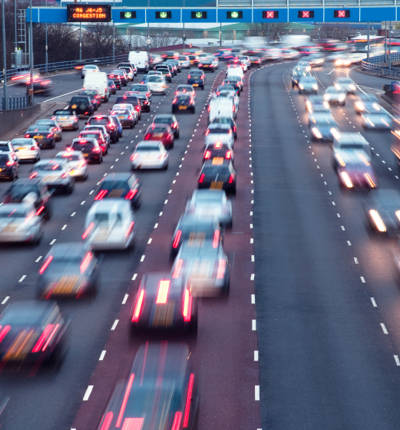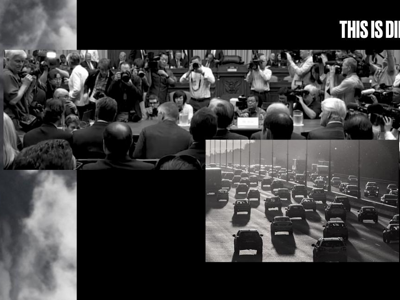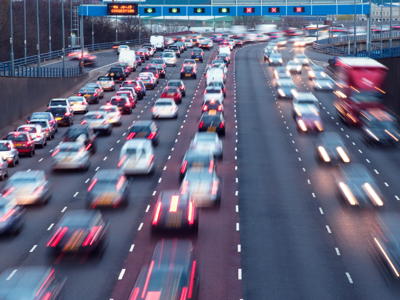
Dieselgate: High Court blocks attempts by car manufacturers to hide key documents that could show whether they cheated emissions tests
The High Court has ruled that five car manufacturers at the centre of Dieselgate legal claims must reveal information in hundreds of documents that they claimed were confidential which will be at the heart of a major trial over whether their vehicles cheated emissions tests.
Posted on 25 July 2025
Mercedes, Nissan, Renault, Peugeot/Citroën and Ford must now remove confidentiality restrictions so that the documents can be referred to at a public hearing trial starting in the High Court on 6 October 2025. The three-month trial will decide whether a range of diesel vehicles made by the five manufacturers contained so-called “prohibited defeat devices”, designed to alter a vehicle’s performance during test conditions, circumventing the intended emission control levels.
The documents include the manufacturers’ own test results, design documents, communications with regulators and documents related to collaboration with other manufacturers. Lawyers representing the vehicle owners believe they contain key evidence about whether software within the vehicles’ engine management systems were designed to reduce emissions under certain conditions, such as specific temperature ranges, in order to cheat the tests.
The judgment by Mr Justice Constable, published on 25 July 2025, follows a hearing at the High Court from 7-9 July at which lawyers from Leigh Day and Pogust Goodhead, the co-lead law firms representing many of the 1.8 million vehicle owners, argued that the manufacturers’ attempts to designate thousands of documents as confidential without explanation was contrary to the principle of open justice and would make the trial “ineffective and unworkable”.
In his judgment, Justice Constable found that the manufacturers’ claims to confidentiality had been “overenthusiastic”:
“The importance of the public being able to understand the substance of the claims against the Lead Defendants outweighs any commercial confidentiality in that material. It should not be necessary for a member of the public or journalist to physically attend Court to understand the allegations.”
In particular Mr Justice Constable found that the parties’ legal pleadings, which for instance set out the claimants’ allegations as to the types and parameters of the cheat devices, and the manufacturers’ witness statements, should be made publicly available in unredacted form .
Mr Justice Constable went on to agree with the claimants that the vast majority of other documents that would be considered at trial will be capable of being “considered in open court, and their contents are subject to no reporting restrictions”, and that it would be “surprising if any part of the…Trial will take place behind closed doors or be subject to any reporting restrictions”.
Further key points raised in the judgment include:
- The defendants’ various claims to the commercial sensitivity of their documents (as a reason for their confidentiality) were (variously) largely generic, assertions, not credible, and wholly non-specific.
- The substance of the allegations against the defendants where wholly impossible to follow with the pleadings in their redacted form, and “[u]ltimately the case is about the technical detail; this will lie at the heart of the evidence explored at trial.”
- Even if the defendants had convinced the judge as to the commercial sensitivity of their technical data (which they did not), “the public interest would remain squarely in favour of allowing the pleadings to be available in public form. This is because the allegations disclose prima facie credible allegations of serious misconduct.”
- Many documents that the defendants had sought to designate as the highest level of confidentiality should be re-designated as a lower level of confidentiality
The October 2025 trial, which is expected to last around three months, will examine whether a selection of diesel vehicles made by Mercedes, Nissan, Renault, Peugeot/Citroën and Ford contained prohibited defeat devices. These five manufacturers have been designated by the High Court as “Lead Defendants” – meaning their trial will be heard collectively, ahead of the other manufacturers involved in the Dieselgate claims, in order to simplify and speed up what is one of the largest group actions in legal history.
The other manufacturers facing the legal claims, referred to as NOx Group Litigation, are Vauxhall/Opel, Volkswagen/Porsche, Jaguar/Land Rover, BMW, FCA/Suzuki, Volvo, Hyundai-Kia, Toyota and Mazda. A further trial to determine how much compensation the manufacturers may have to pay to vehicle owners is listed for Spring 2026.
Leigh Day’s senior partner Martyn Day said:
“We are pleased the court has agreed with our submissions that the manufacturers cannot hide their behaviour behind a cloak of confidentiality.
“Given the huge number of claimants involved in this legal case – the largest ever group action in England and Wales – it is crucial these documents that will be at the heart of the trial can be accessed by the public and the media to ensure full and thorough reporting of this corporate scandal.
“The principle of open justice is central to our legal system, and it is right that the public can scrutinise the evidence that is heard in court.
“Given that the documents in question relate to cars manufactured more than five years ago, it was absurd for the manufacturers to claim that public examination of them would result in breaches of commercially sensitive matters – some of the manufacturers don’t even make diesel cars anymore.
“This over-reliance on confidentiality by the manufacturers has added many months to the case and has caused many hundreds of hours’ of unnecessary work for the legal teams.
“We now look forward to the trial getting underway in October so we can examine the evidence in full to determine whether the manufacturers did indeed cheat these emissions tests.”
Reacting to the judgment, Tom Goodhead, Global Managing Partner and CEO of Pogust Goodhead, said:
“Excess emissions beyond legal limits are not just a regulatory issue - they are a major public health and environmental concern. By allowing the trial to proceed in open court, the court has recognised the urgent need to bring potential corporate wrongdoing into the public domain. This includes examining whether car manufacturers deliberately concealed dangerously high levels of pollution from regulators and consumers.
“Throughout this process, the manufacturers have resorted to a range of legal manoeuvres in an attempt to suppress scrutiny and push for a trial held largely behind closed doors. These efforts have not only wasted judicial resources but run counter to the fundamental principle of open justice - a cornerstone of the British legal system.
“Today’s judgment sends a clear message: attempts by car companies to suppress scrutiny and keep allegations confidential will not succeed. This is a proud moment for open justice and a vital step toward exposing the truth and securing accountability for the diesel emissions scandal.”
Peter Gallagher, partner and Head of Product Liability and Supply Chain Litigation at Pogust Goodhead, said:
“We are very pleased with today’s judgment, which paves the way for the trial to be conducted in open court. This is a significant step forward, allowing us to present critical evidence in full view of the public and the press. We are determined to hold car manufacturers to account, and transparency is essential to exposing the scale of their alleged wrongdoing.
“The public has a right to know. In the UK alone, diesel emissions are linked to an estimated 16,000 premature deaths, over 30,000 new cases of asthma in children, and €96 billion in economic costs between 2009 and 2024. Without accountability, these numbers will only rise.
Justice must not only be done, it must be seen to be done. The public has a right to know the full extent of these allegations, and today’s ruling ensures that this will happen.”
Representations were also made at the 7-9 July hearing by environmental law charity ClientEarth and the pressure group Mums for Lungs, who argued there was a strong public interest in declassifying the documents to ensure regulatory authorities have the necessary information to enable them to take action regarding vehicle emissions.
Lawyers for the manufacturers argued at the hearing that huge numbers of documents containing evidence central to the trial should remain confidential from both the public and from each other due to alleged commercial sensitivity. They proposed a number of different options to the Court on how to achieve this during the trial.
One option would have meant the trial being stopped every time a confidential document was about to be referenced, so the room could be cleared of all members of the press and public, as well as the legal teams of all the other manufacturers. Another suggestion was for many of the documents to remain confidential from the press and public until after the trial had concluded. Lawyers for the vehicle owners described these approaches as “ineffective and unworkable” and argued they would effectively lead to a gagging of the press.

Diesel emissions claims
Leigh Day currently represents over 280,000 people in exhaust emissions claims against motor manufacturers.

Nine years of Dieselgate - from the High Court to recalls and the risk to people’s health
As the Times reports that thousands of cars may be recalled due to government investigations into the Dieselgate scandal, Leigh Day partner, Fiona Huddleston and paralegal Berk Soyer look at the potential implications of Dieselgate for human health, the environment and vehicle recalls.


